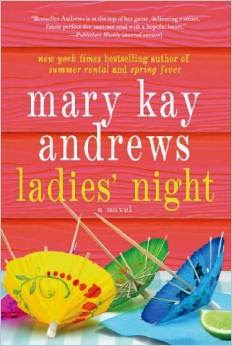The Importance of Complex Characters By Jacqueline Friedland
 |
| Photo by Rebecca Weiss |
A
couple of years ago, there was a debate in the literary world about “likeable”
characters. The question, essentially,
boiled down to this: must a character be unpleasant, whether angry or aggressive,
selfish, or all gloom-and-doom in order to be taken seriously as a literary
character? When the debate arose, the focus
was primarily on female characters— if a female protagonist has too many
redeemable qualities as a person, does this detract from her substance as a
character in a story? This query nagged at
me and took on a new shape during my writing Trouble the Water, as I watched my two main protagonists undergo
journeys of personal growth that left them both decidedly more pleasant than
the people they were when the story began.
The question I needed to answer was whether depth and meaning are
negated by personal recoveries?
My
own take, as a reader, is that if I am going to spend hours reading a novel,
hanging out with characters, I would much prefer to like them. I will feel more invested in the outcomes of
the trials they navigate in their stories, I will care more deeply, and I will
enjoy myself to a greater degree. And if
that’s how I feel when reading, imagine how I would feel writing my own
story. If I am going to invest months (ok,
years) writing a main character, I cannot imagine the torture of writing
someone awful. I am not a person who
gravitates toward sad or scary books, or movies, or music. I don’t like haunted houses, or roller
coasters, either. I do not put myself,
deliberately, into situations that make me feel uncomfortable for one reason or
another, and that would include creating a character I wanted nothing to do
with. That said, certainly roller
coasters and horror flicks and haunted houses are enjoyed by many. They are just not for me.
I
am a “fixer” by nature, and I would simply be incapable of allowing any
miserable protagonists to remain wretched forever. As I neared the conclusion of Trouble the Water and allowed Abigail
Milton and Doulas Elling to show an increasing number of compensatory
characteristics, I realized that I take pride in my optimism, that I have what
psychologists refer to these days as a “growth mindset”. If that growth mindset results in my
continued creation of characters who people might actually want to sit next to
on the subway or share a meal with, so be it, right? I believe things can and should get better,
that one reason we read is for the satisfaction of seeing one or another character
grow, transform, or otherwise improve herself. In my estimation, characters
should be complicated, but open to the possibility of change and positive
developments, and that it is this very type of progress that often gives
readers an experience that might perhaps be described as both substantive and
uplifting. In other words, meaning and
happiness can peacefully and successfully coexist.
About the author:
Jacqueline Friedland holds a BA from the University of Pennsylvania and a JD
Jacqueline Friedland holds a BA from the University of Pennsylvania and a JD
from NYU Law
School. She practiced as an attorney in New York before returning
to school to receive her MFA from Sarah Lawrence College. She lives in New
York with her husband, four children, and a tiny dog.
Purchase a copy of TROUBLE THE WATER here and it is her debut novel.
Visit her on her social media platform:



Comments
Post a Comment